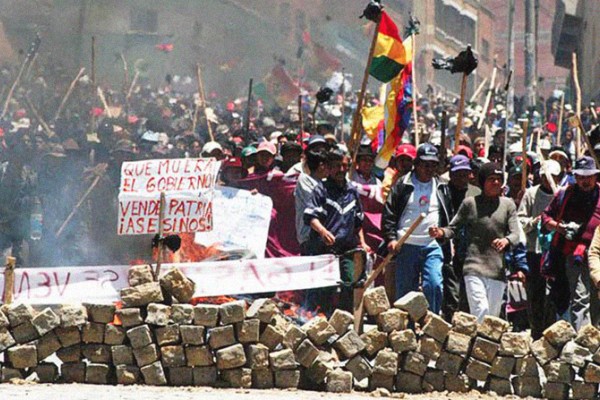-

40 years in Indian Country
The past forty years have seen dramatic changes among the Aboriginal peoples of Canada. In 1963 the legacy of colonialism was deeply entrenched, Aboriginal peoples were seen as a ‘problem population’ within Canada, Aboriginal rights were widely ignored and unknown, there were few national voices or fora for Aboriginal leaders. In 2003 the struggle to decolonize is being engaged in a wide variety of institutions.
-

The CD story (so far), part 2
There were several changes of the guard at CD as we entered our third decade and with them a decidedly more diverse content. More than ever before our collective was drawn from activists in various popular movements. But the new diversity arose from more than the changing composition of the collective.
-

Remembrance and censorship
By the time this commentary appears, another mawkish, duplicitous Remembrance Day will be history. Editors, writers, producers and photographers will have looked for new ways to honor Canada’s War Dead – though not very hard – and will likely have settled for yet another shot of the dwindling parade of fragile veterans who appear faithfully every year to fill what’s known among journalists as “the November Hole.”
-

Patterns of upheaval
Bolivia’s president just resigned following several days of popular and labour uprising and government repression. Once again in Latin America, the issue is one of access to resources (where isn’t it?) – the government wanted to export natural gas resources – Bolivia has Latin America’s largest natural gas reserves - to the United States and Mexico.
-

Canada’s socialist legacy
What can those of us committed to the socialist project, to laying the groundwork for a viable mass, democratic, but revolutionary party learn from what our fathers and forefathers did? Serious inquiry into the history of the Canadian socialist movement will help us not only to learn from the mistakes of the past, but also to reclaim what is valuable from this history.



